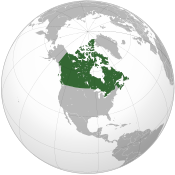User:Amgine/Reboot/Wet’suwet’en Chiefs challenge Canada's legal assumptions
This is not a published article. The user has (presumably) parked it here for later reference.--Bddpaux (talk) 15:48, 25 July 2022 (UTC)
Tuesday, January 18, 2022
Coastal GasLink security forces continue to illegally attempt to prevent journalist access to Wet’suwet’en territory to cover the ongoing natural gas pipeline construction, and protests to prevent that construction, reports The Tyee. This while Indigenous leaders from across British Columbia attend a gathering in the territory entitled the Peace and Unity Gathering.

Members of the media toured sites under the ægis of Wet’suwet’en hereditary chief Na’Moks as an element of the gathering event.
TC Energy, after TransCanada Pipelines formally changed names following the failure of their Energy East and Keystone XL projects, is building the pipeline across northern British Columbia to bring natural gas to a proposed Liquified Natural Gas plant on the coast at Kitimat, BC. The company has not, according to hereditary chiefs of the Wet’suwet’en peoples, given them oppotunity for meaningful input on the project as required by the UN Declaration of the Rights of Indigenous People (UNDRIP,) though it has gained approval of the reservation government .
Both Canada and the province of British Columbia have passed legislation recognizing UNDRIP, and in BC it is entered as law. The legal issues regarding the land underly the entire dispute. In most of British Columbia the Indigenous people never signed treaties, nor was any imposed upon them legislatively. The Supreme Court of Canada has recognized the government is operating without legal jurisdiction on these unceded lands, and that Indigenous Law is in force on them.
A series of recent legal decisions increase the uncertainty over what happens when those two bodies of law conflict. A January 11th ruling found tribes may be entitled to "substantial compensation" for a dam built in the 1950s, and that corporations and individuals may also be civilly liable for breaches of Indigenous interests. Last year the Supreme Court found Indigenous tribes with historic territory claims in unceded lands in Canada have rights to exercise their rights there, even if they are not Canadian citizens. British Columbia itself was found to have breached the treaty with Blueberry River First Nation, not through any one action but through the accumlation of them over decades, and the tribe was given full decision-making authority over their lands.
That decision has shaken Canada's legal establishment to its core. Blueberry River First Nation is a treaty nation; unceded territory will have far greater autonomy in the eyes of the courts.
British Columbia has given the RCMP expanded authority to bring more forces to bear in the dispute. They have conducted three military-style raids on demonstrator camps in the past three years, including the November 18 2021 raid in which they arrested without cause and held incommunicado two journalists who filmed officers arresting unarmed tribal members at gun point.
Source
[edit]- Amanda Follett Hosgood. "Coastal GasLink Attempts to Block Reporters from Wet’suwet’en Territory" — The Tyee, Today [2022/01/18]
- John Woodside. "‘An attack on our people’: Wet’suwet’en Peace and Unity Gathering calls for end to violence" — National Observer (Canada), January 14th, 2022
- Lee Wilson. "B.C. court says First Nations may be entitled to ‘substantial compensation’ for lost fishing rights" — APTN National News, Jan 11, 2022
- Olivia Stefanovich. "Sinixt Indigenous nation not 'extinct' in Canada, Supreme Court rules" — Canadian Broadcasting Corporation, Apr 23, 2021
- Tony Seskus. "How a big win for a First Nation in B.C. could bring change for resource development in Canada" — Canadian Broadcasting Corporation, Oct 21, 2021


